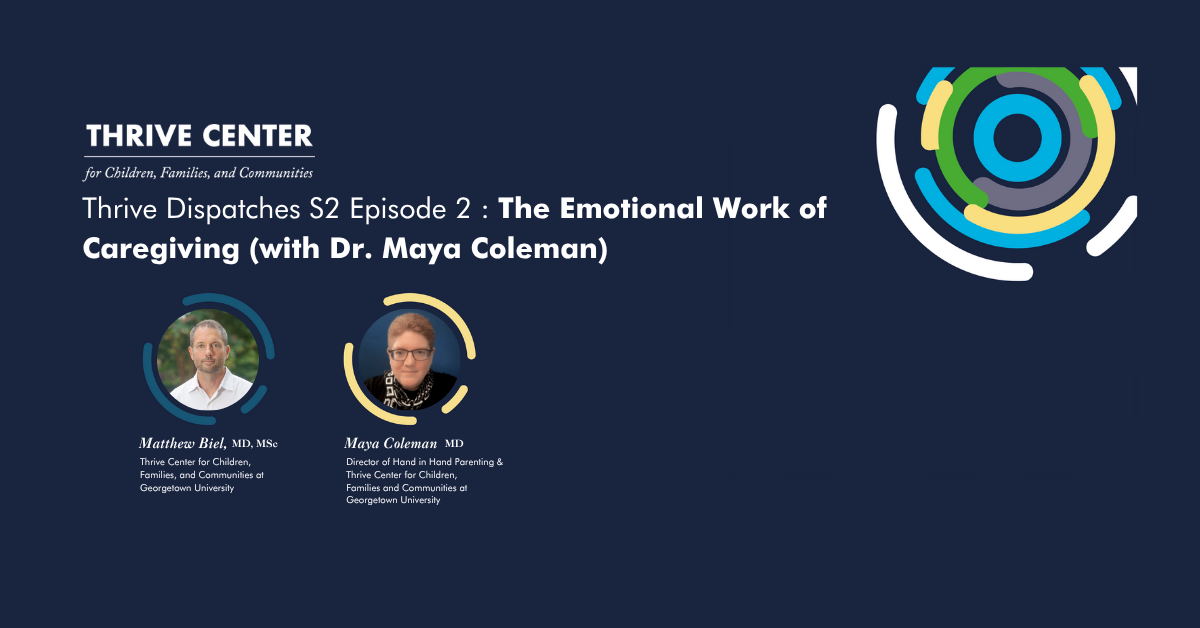Thrive Dispatches Season 2 Episode 2: The Emotional Work of Caregiving (with Dr. Maya Coleman)
In this episode, Dr. Matt Biel speaks with Dr. Maya Coleman, Director of Hand in Hand Parenting and faculty member at the Thrive Center. Hand in Hand is an international organization that has been supporting families for 35 years across nearly 40 countries.
Dr. Coleman brings a unique perspective shaped by her experiences as both a clinical child psychologist and as a parent who discovered firsthand that professional expertise doesn’t automatically make the work of caregiving any easier. The conversation explores what it really means for communities to support thriving in young children, why working with children is inherently emotional work, and how we can help the adults in children’s lives navigate that emotional complexity.
Through Hand in Hand’s approach, Dr. Coleman teaches adults how to listen to children and to each other in ways that build warm, attuned, and responsive relationships. The organization’s five concrete listening tools help families and educators create conditions where emotions can be expressed and processed within caring relationships.
For questions, comments, or ideas for future episodes, please email us at: thrivecenter@georgetown.edu.
Download Full Transcript
Summary:
In this excerpt, Dr. Coleman explains why caring for children brings up so many emotions for adults:
This interview has been edited for length and clarity.
Matt: What makes it so emotional? What are the kinds of emotions that are part of the everyday experience of adults working in early childhood?
Maya: Caring for a child, parenting a child, teaching a child, is really the fastest way back in to all of our own, memories and experiences of being parented, of being cared for, of our own joining of communities. It’s the quickest way back into the residue of our own experiences and often that doesn’t get recognized.
We walk into all of those situations with our own, full backpack of experiences that we’ve had and that we may never have had the chance to work through or get assistance with. And those just get pinged deeply and immediately in caring for children.
Matt: So then what’s the problem when, when things aren’t going well, what if it’s not the emotions is the problem, what’s the problem?
Listen to the full episode
